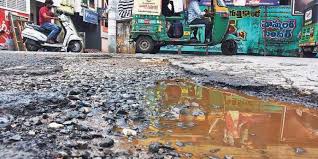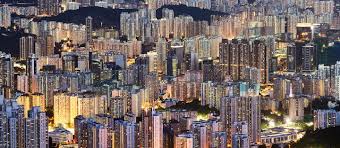It is undeniable that the people residing in certain metropolitan areas in Nigeria suffer from basic needs such as affordable housing provision, poor water management facilities, epileptic electricity supply, high crime rate, food insecurity, unemployment, inadequate waste management amongst others.
Millions of urban settlers reside in substandard environments called slums, deficient in social amenities.
About 3 million houses are required to meet the backlog of housing needs and the replacement of substandard ones.
The proportion of existing urban housing stock that is dilapidated is estimated at 22.3 per cent nationwide.
Crimes and social behaviour have become endemic in our urban areas.
The capacity of law enforcement institutions to prevent these crimes is increasingly impeded by technological and resource limitations.
While Poverty is becoming more endemic in our urban centres because of infrastructural problems.
The practice of incessant waste dumping has increased to a devastating and uncontrollable rate in most of our metropolitan areas.
A considerable number of houses have no access to a safe waste disposal system, which poses a great health risk.
Most houses in major cities have no access to hygienic toilet facilities.
Open defecation has become prevalent in these cities.
About 47 million Nigerians still practice open defecation in this century.
This is our present reality, what a pity!


Despite 23 power plants in urban areas generating electricity, inadequate provision of electricity service has affected most business firms, as they spend over 20 per cent of their capital outlay on providing their own infrastructure, which under normal circumstances, should have been provided by the municipal authorities.
Due to the population in urban settlements, there have been alarming calls for good health facilities and also organize programs to educate masses on health issues.
Even health workers have developed a nonchalant attitude toward patients, which often results in the death of individuals.
Although education is said to be the passport of the future when children lack the right facilities for education, what do we then expect of them tomorrow?
Most urban schools are suffering from overpopulation, inadequate social amenities, poor health facilities and lack of opportunities for recreation, amongst others.
The threats to the development of our urban centres in Nigeria calls for drastic measures.
It is a call that should address both the micro and macro issues at the same time if we ever want to have real urban cities like the western world. If the government cannot address these issues, then our urban centres will be a shadow of what it should really look like.
In addressing these issues, the government should first align with agencies within the private sector to deal with these issues from their root.
Though the federal government has exhibited concerns towards the housing sector and eradication of slums in urban centres by allocating houses in urban areas, there should be a total demolition of old and dilapidated buildings in urban areas.
Adding to this both state and the federal government should promote low-cost housing schemes so that citizens with low income can also get a roof over their heads. This alone will reduce the number of homeless people in the country.
Despite some improvement in the health sector, more health structures should be in place, especially states with massive influx like Lagos State. Government at state and federal levels should employ more health workers to make up for the deficit.
This act will help curb unemployment and increase the number of workers in the health sector. In most western economies, the health sector is one of the sectors with the highest number of employees, and Nigeria should also adopt this method.
The government should embrace plans to sensitize the masses on waste disposal and management and also provide an easy means of disposing of waste. A better way to do this is to place a value on different trash. For instance, in some parts of the world, when people drink bottled water, they don’t dispose of the can because there is a valued place on the can. So they take it to the nearest collection centre where it is exchanged for money. And then the cans are taken for recycling from the collection centre.


In the area of power supply, the government has taken steps to improve power supply in most urban settlements, but, the majority of the masses still experience a high level of power failure. The government should work on increasing the power generation and distribution of electricity. Faulty power plants should be fixed.
The right frame to a modern urban centre is to provide adequate social amenities, health facilities, constant power supply, among others.
Also, the need for power supply is as important as that of proper waste disposal, both the micro and macro issue all play a part in the development of a modern urban centre of the 21st century we can all be proud of.
Temitope Emmanuel Olumoyin is an investment and a dynamic real estate broker with a remarkable and proven track record in the industry. With several years of experience in the industry, he is passionate about making land and housing affordable for all. He is the MD/CEO of Gramz Investment & Asset Limited – A wholly indigenous, reliable and fast-growing real estate and investment company in Nigeria.
You can reach Temitope Emmanuel Olumoyin on Facebook:https://web.facebook.com/ftemitopeemmanuel












































